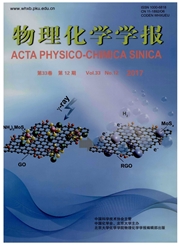

 中文摘要:
中文摘要:
超级电容器作为一种新型的能源存储装置,因为其比容量大、充放电速度快、循环寿命长等优点,在储能领域引起了极为广泛的关注。电极材料是决定超级电容器性能的核心因素,其中,常用的超级电容器电极材料主要有如下三类:碳基材料、金属氧化物及氢氧化物材料和导电聚合物材料。本文综述了超级电容器的工作原理并详细介绍了基于碳材料及其二元、三元复合体系的电极材料的研究进展。
 英文摘要:
英文摘要:
As a new type of energy storage device, supercapacitors with high specific capacitance, fast charge and discharge, and long cycle life have attracted significant attention in the energy storage field. Electrode materials are a crucial factor defining the electrochemical performance of supercapacitors. The standard supercapacitor electrode materials used can be classified into three types: carbon-based materials, metal oxides and hydroxide materials, and conductive polymers. This review introduces the principles of supercapacitors and summarizes recent research progress of carbon-based electrode materials, including pure carbon materials, and the binary and ternary complex materials with carbon.
 同期刊论文项目
同期刊论文项目
 同项目期刊论文
同项目期刊论文
 期刊信息
期刊信息
